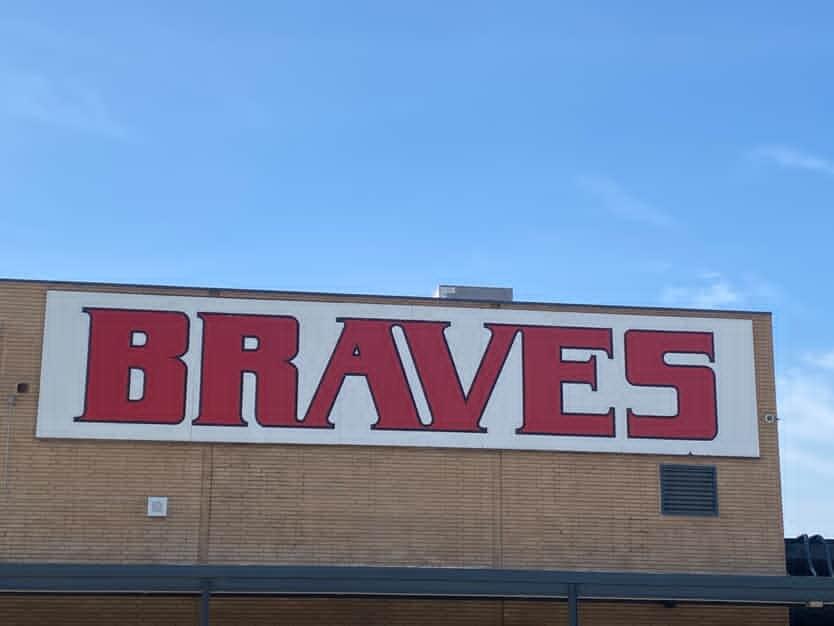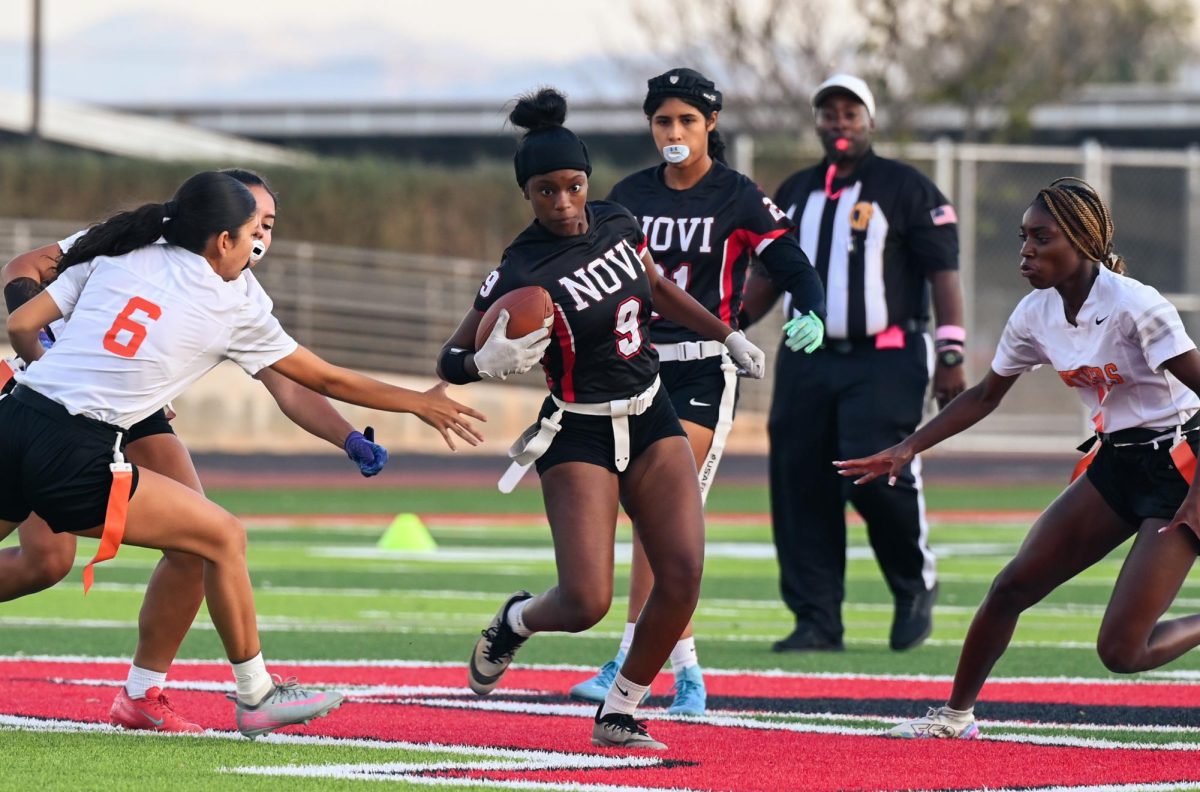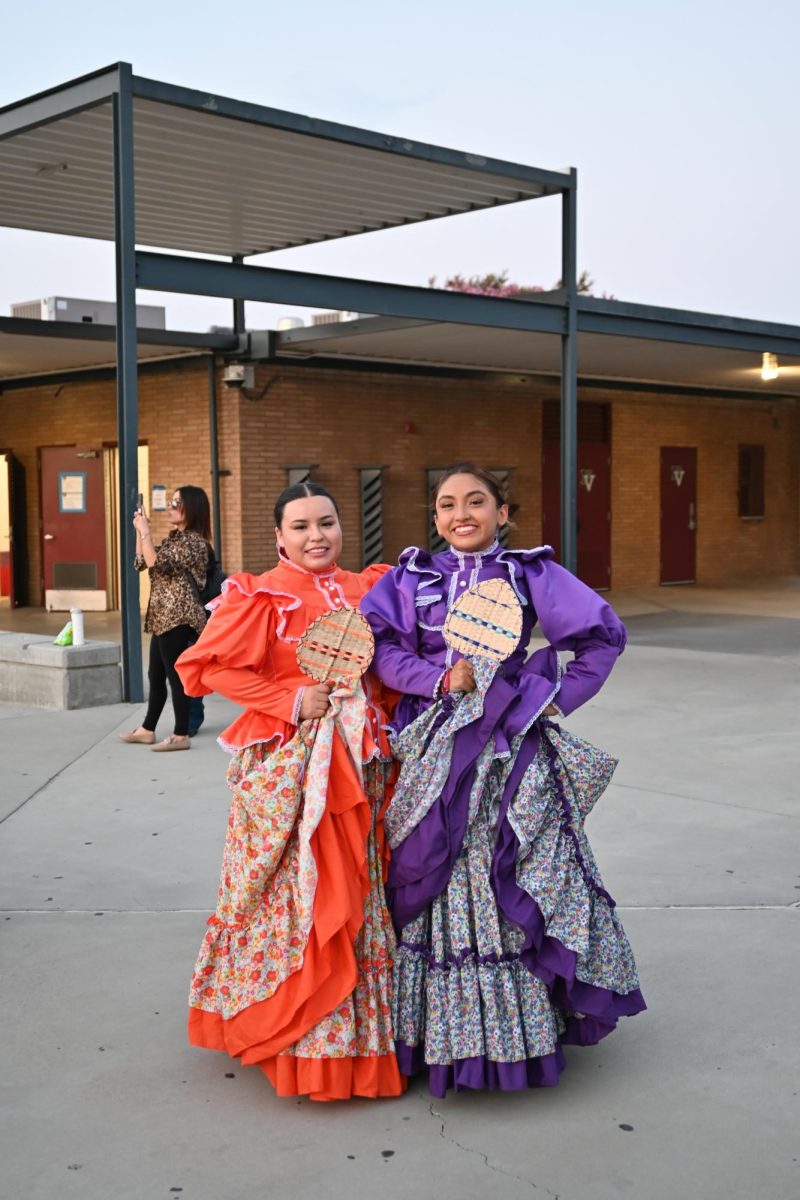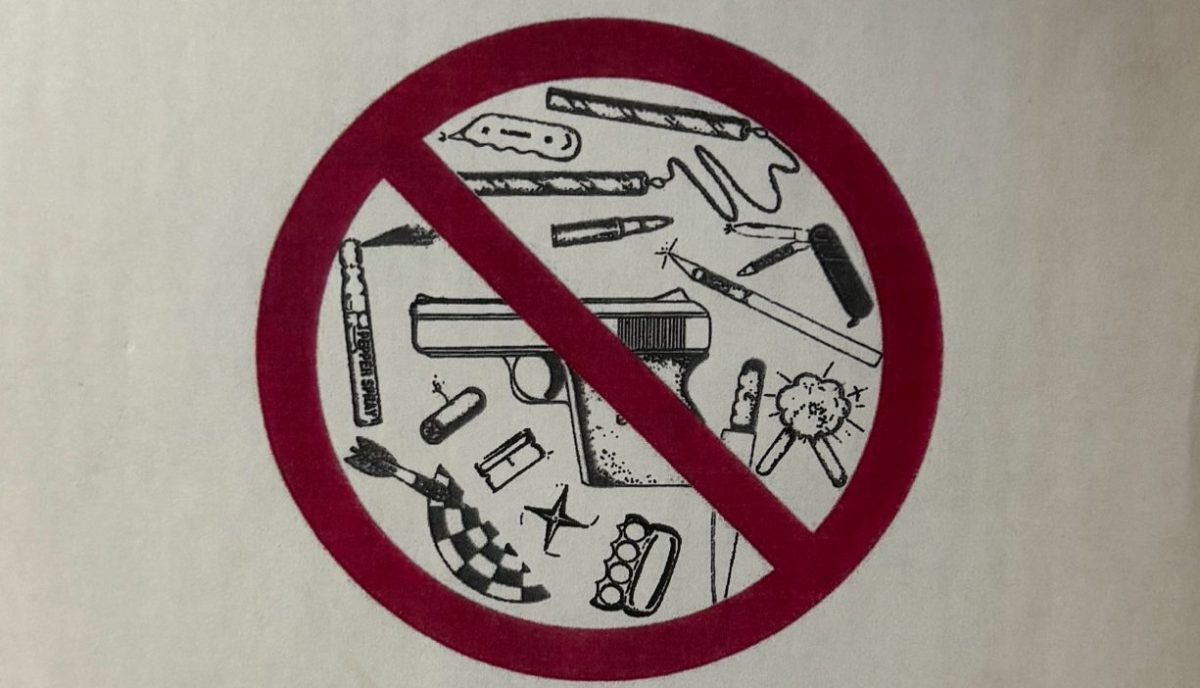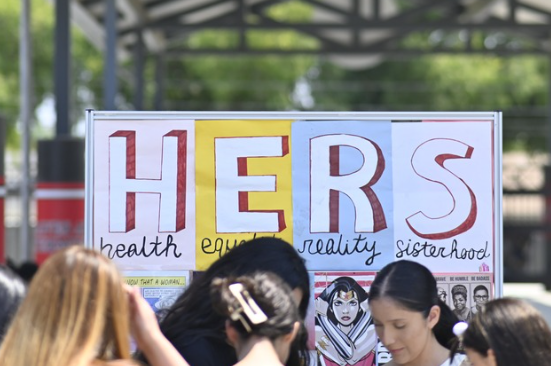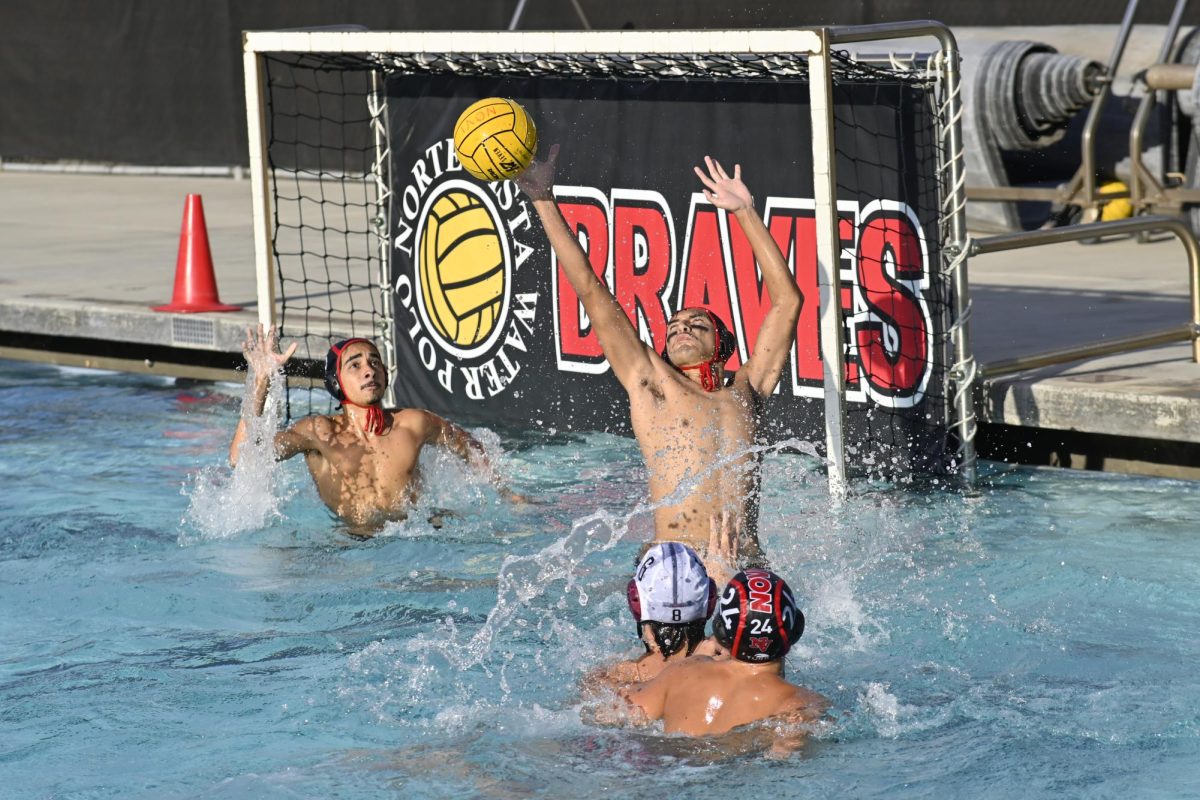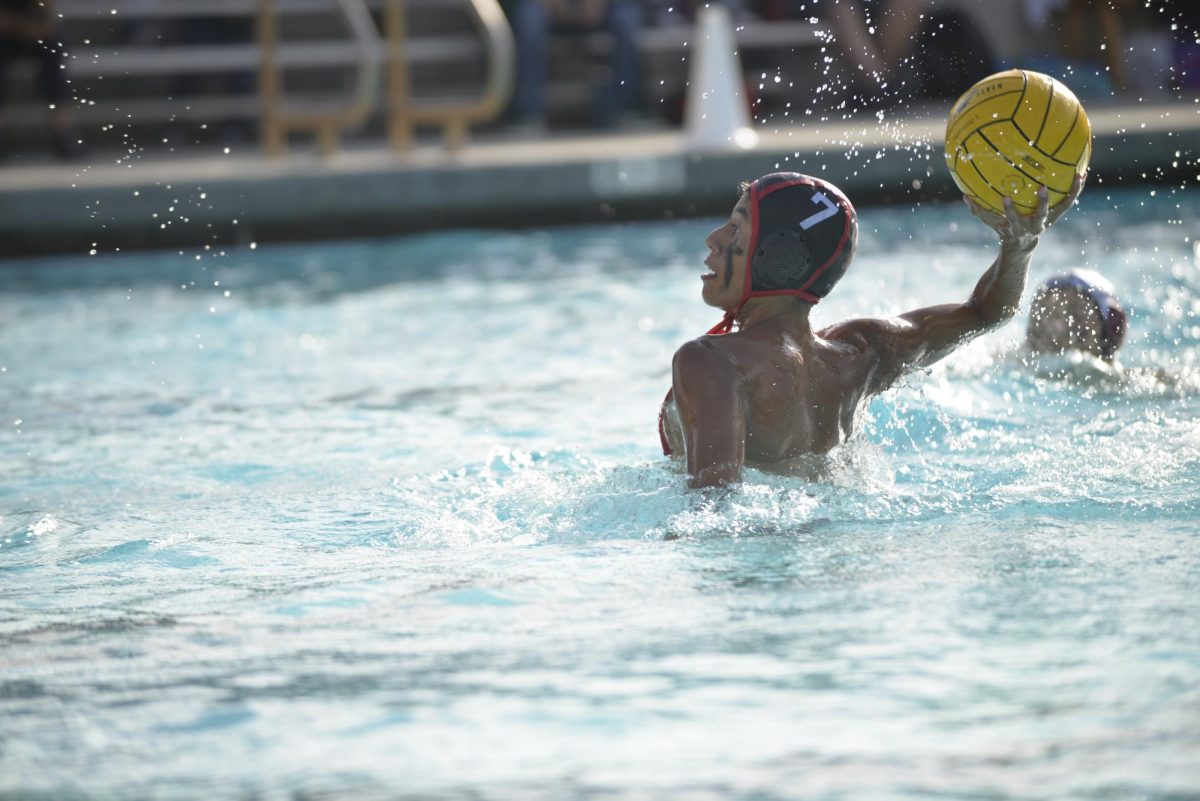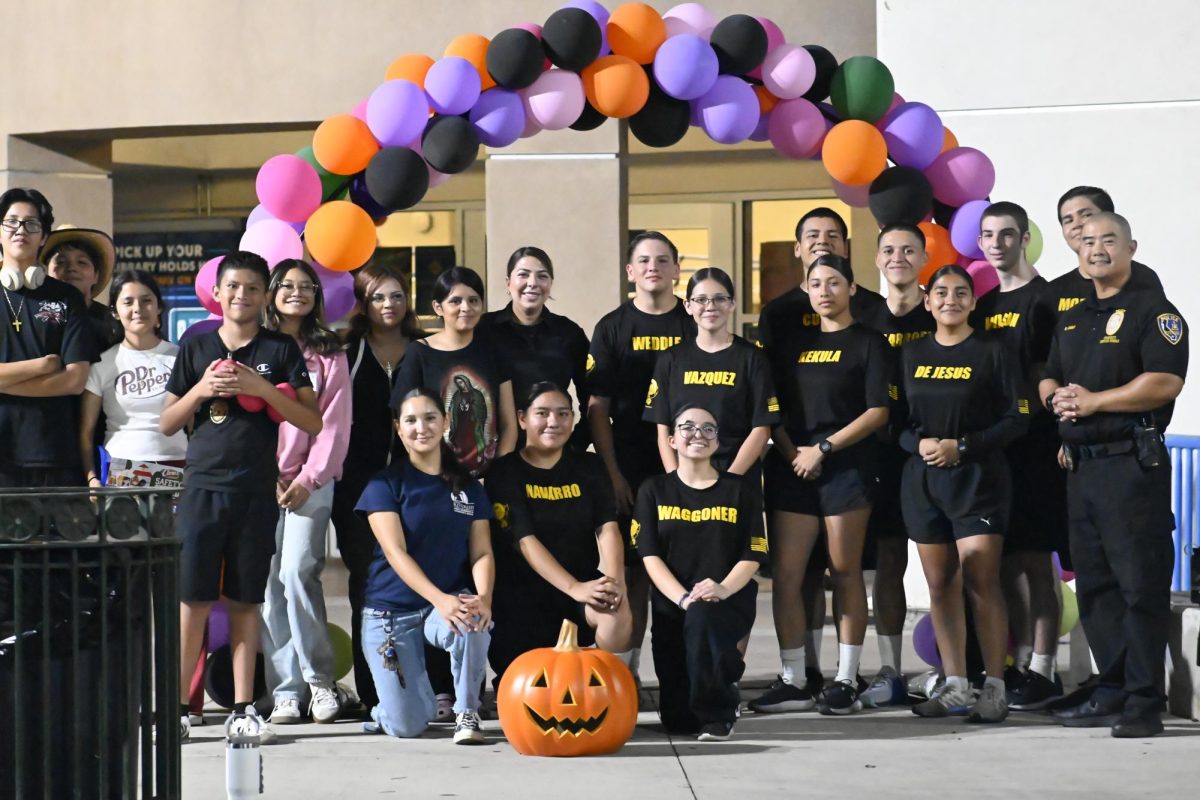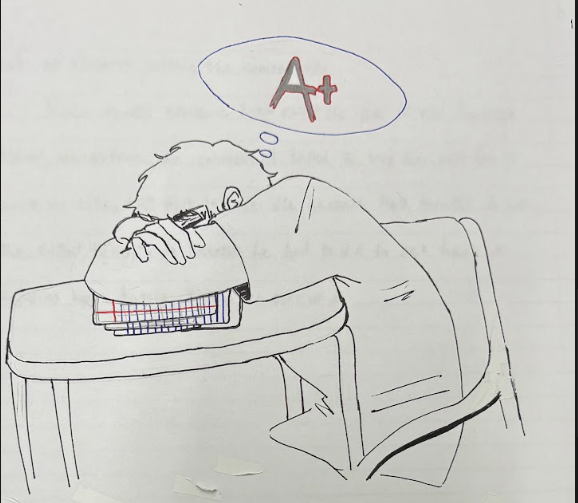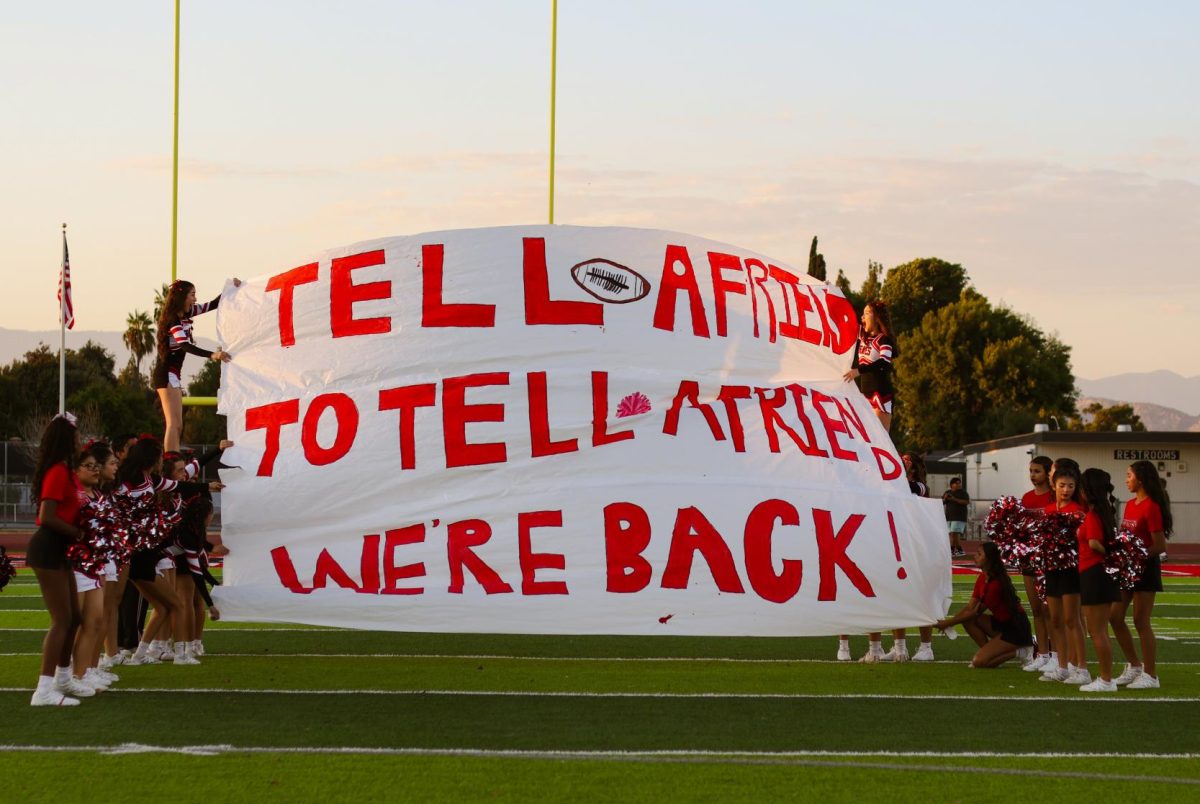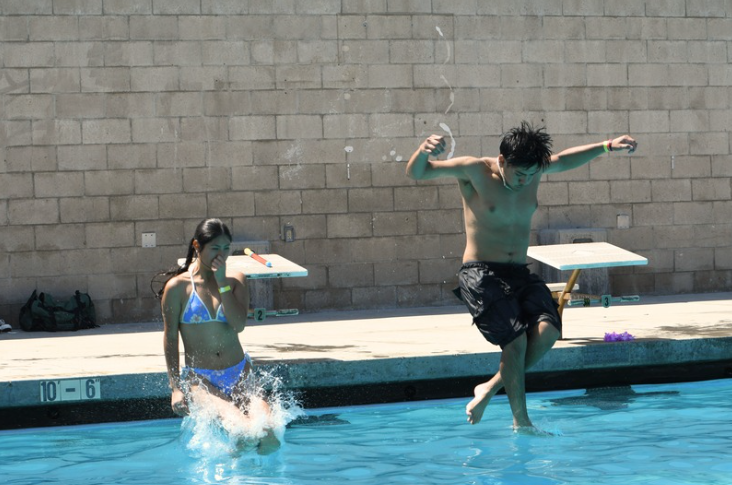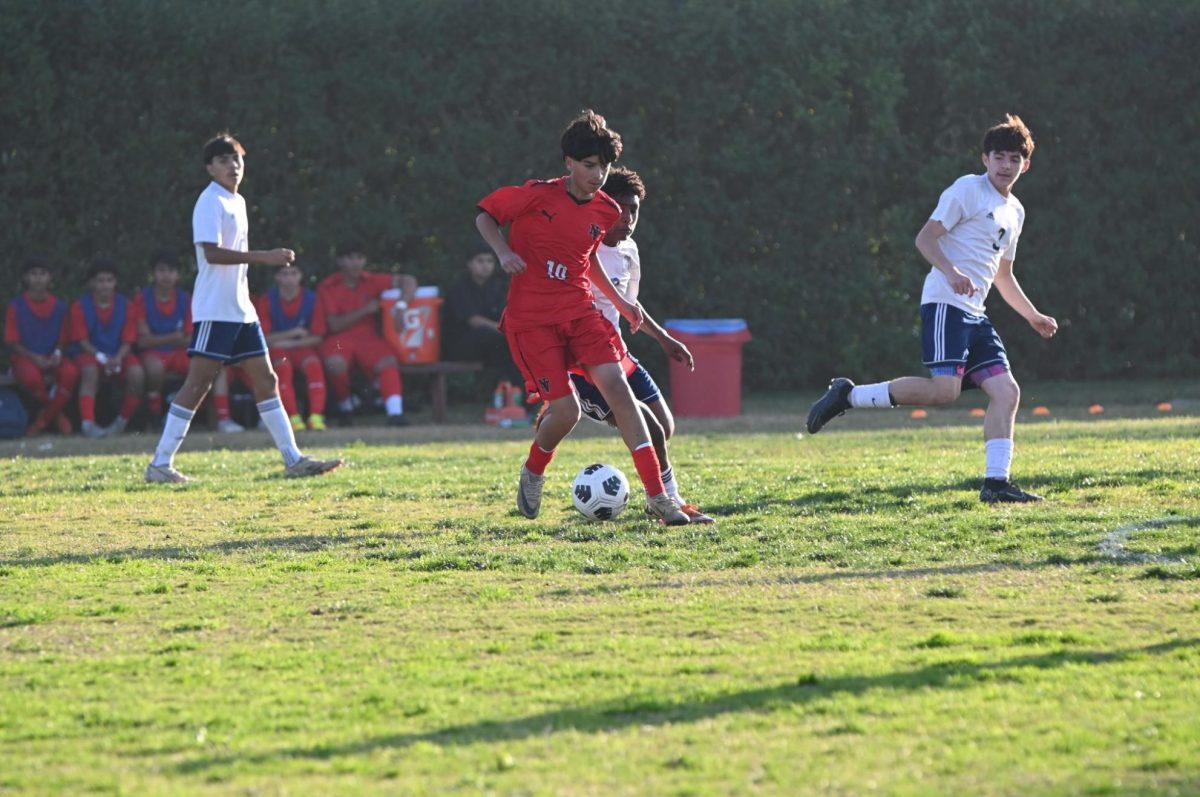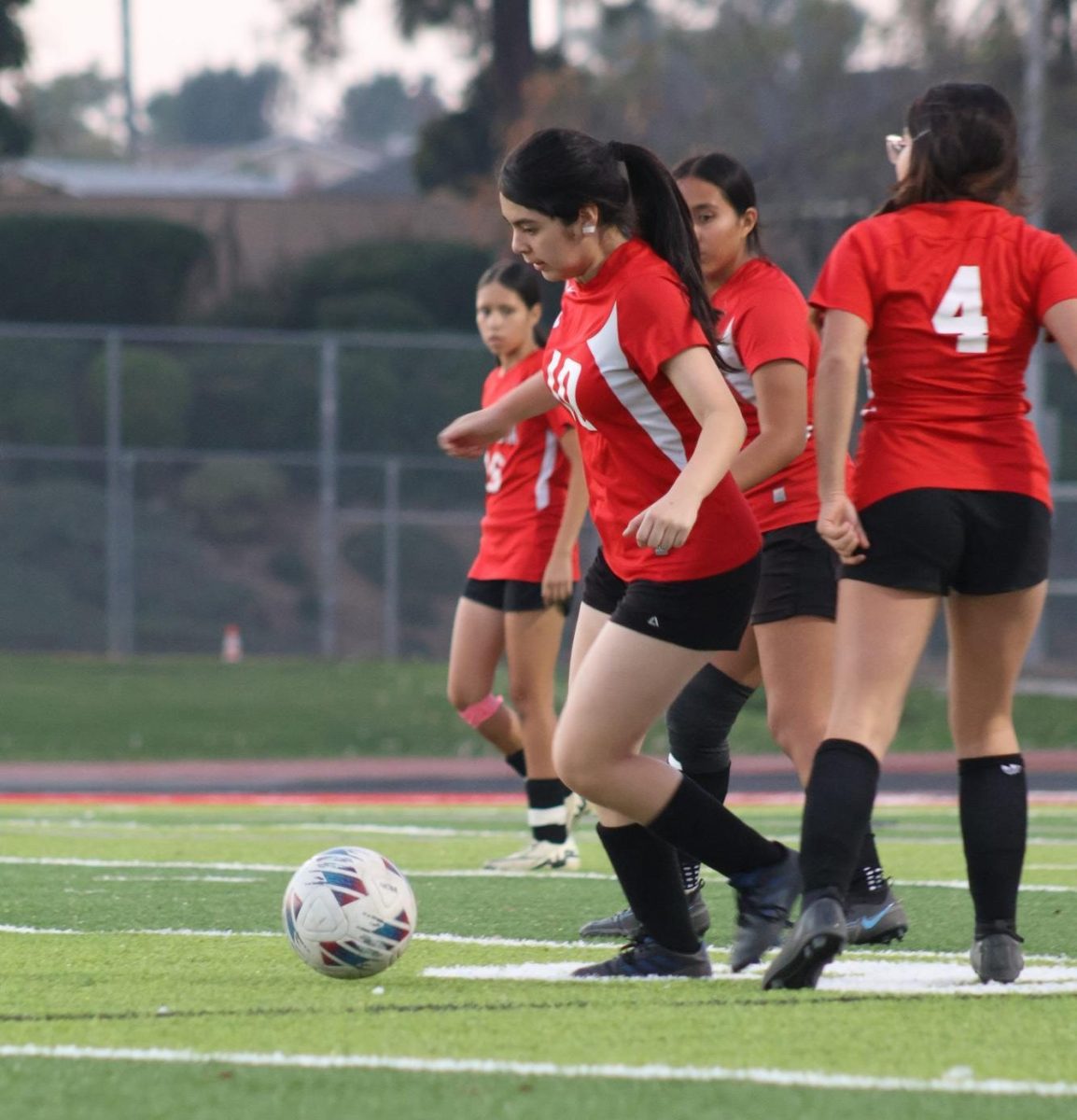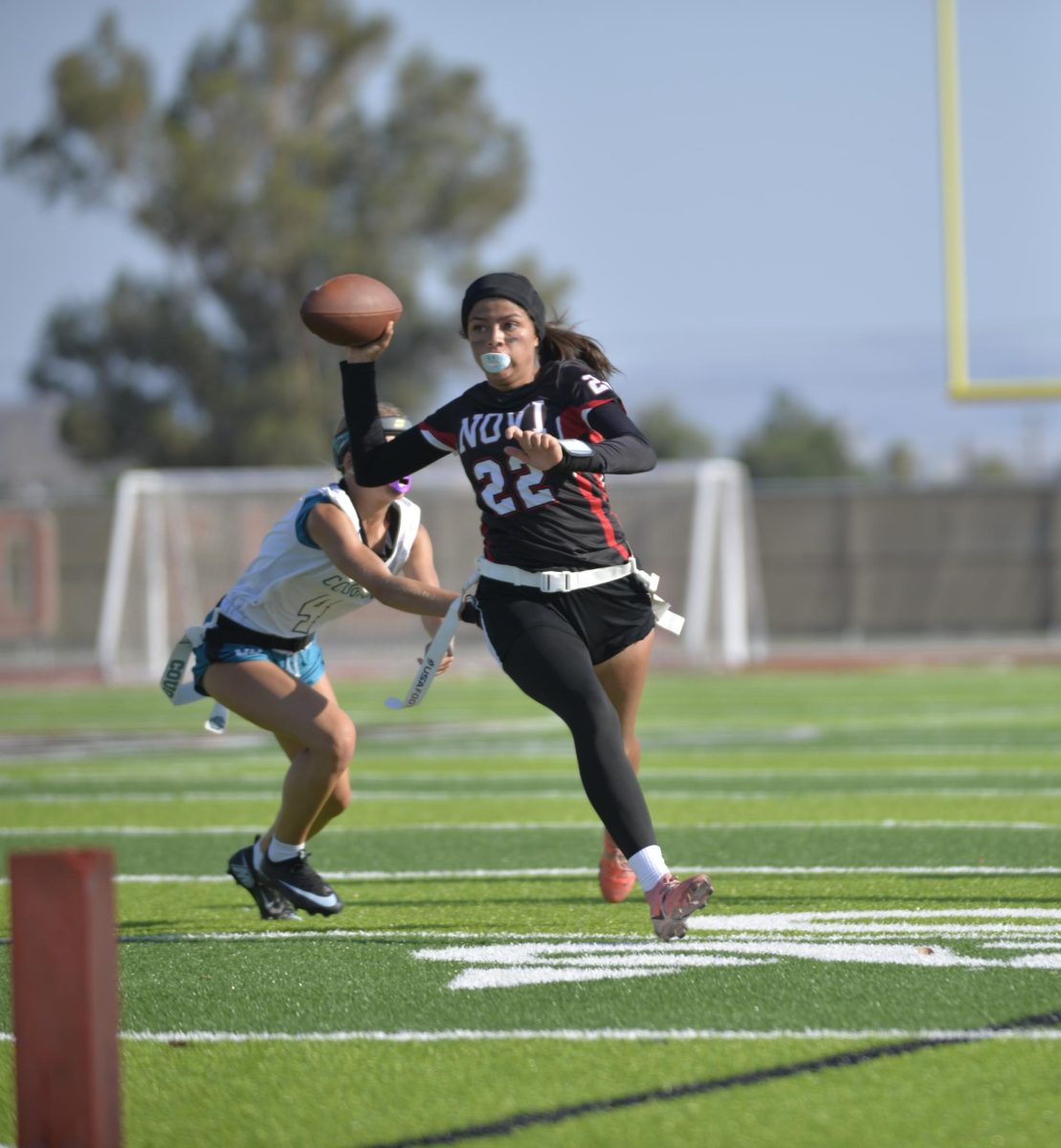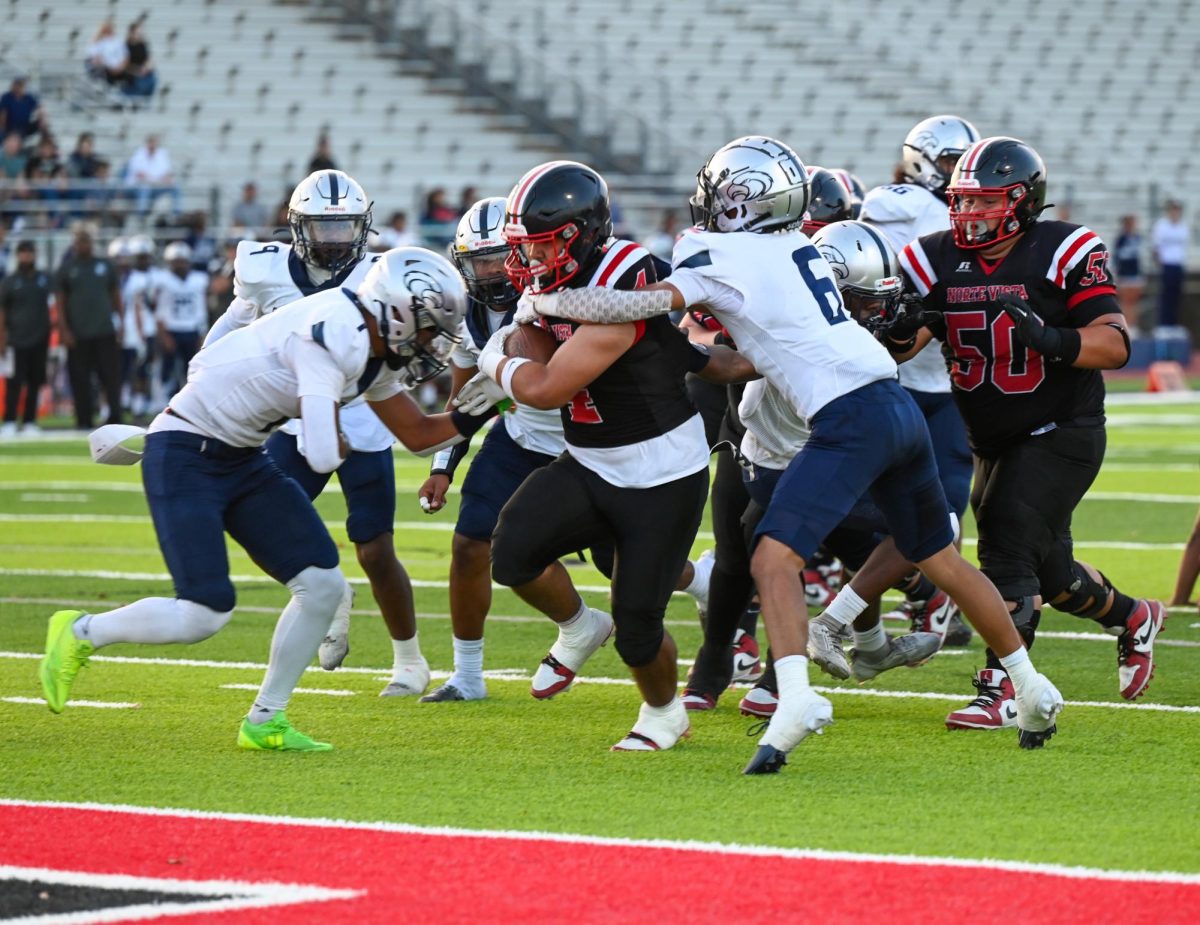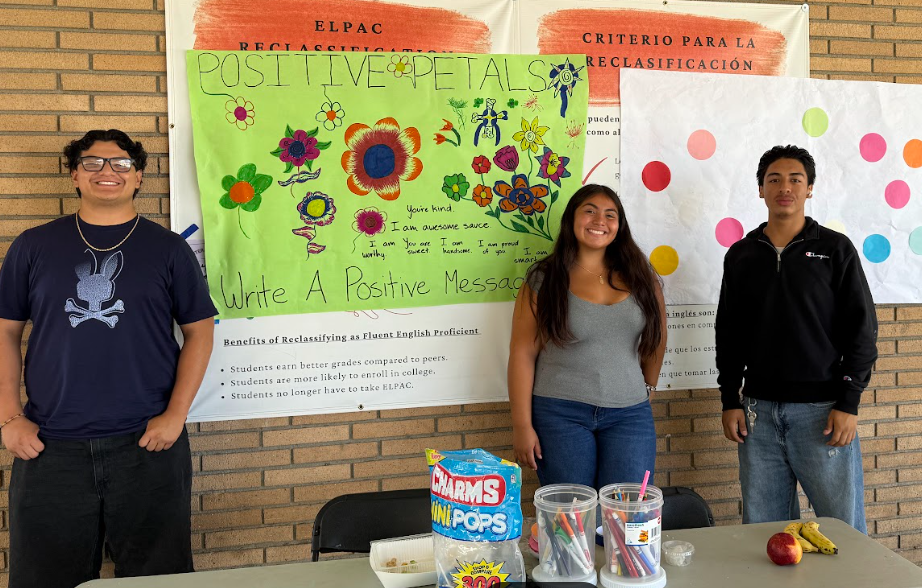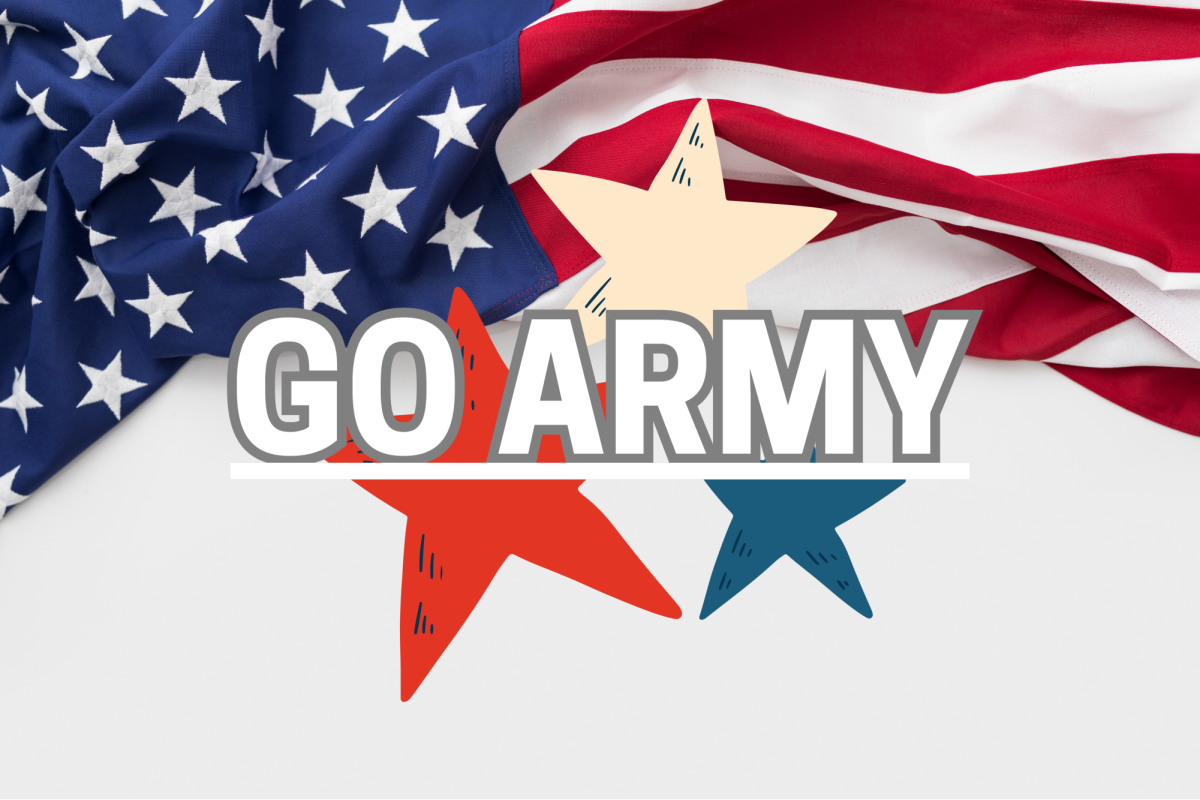GOARMY GIVES STUDENTS AN OUTLET FOR SECURITY AND STABILITY
Friday, September 13, students crowded their way to the student parking lot carrying slips of paper to fill out. At the parking lot, there was a large setup of various tents and exercise equipment; sergeants, privates, specialists, and lieutenants stood by each tent and piece of equipment. Norte Vista was paid a visit by GoArmy as a means to recruit students and generally give NOVI students secondhand experience as to what being in the army entails.
Through interviews, several members of the Armed Forces explain the benefits, downsides, and expectations of being a part of the Army. One of the participants, SPC Neamtu, an armed reserve, briefly mentions one of the most commonly dreaded aspects of the army.
“You’ll know if you’re going to get deployed and whatnot. It’s not always ‘shoot guns’ and ‘get shot at’ and ‘potentially die or kill people’ — that’s pretty minor, but it can happen,” said SPC Neamtu.
He then goes on to explain how training in the army typically plays out.
“Basic training is about 8-10 weeks long and you have three phases. You have red phase, white phase, and blue phase. They’re each about two and a half to three weeks long. Red phase is first. That’s the phase where you are the most stressed. You’re new, in a new environment, meeting new people, a bunch of different viewpoints, blah, blah, potential fighting, arguing, and whatnot. But that’s also when you have the Drill Sergeants yelling at you the most, trying to break you down and build you back up again. You’re marching, you’re learning ranks, you’re learning how to address people, and you’re learning the basics, essentially,” said SPC Neamtu.
When asked about personal grievances, most recruiters responded that they only opposed having to wake up earlier than most. According to the several interviewees, the primary benefits of joining the army consist of financial security, job security, housing, clothing, tuition, and several other necessities alongside the sense of community.
“I think it depends on the person. To say that when I started this job that it was easy to go up and talk to strangers and put myself out there and, you know, be personable … It’s a little hard at first. But once you start changing lives and getting involved, I think it gets easier,” said SSGT Orozco.
Your donation will support the student journalists of Norte Vista High School. Your contribution will allow us to cover our annual website hosting costs.

